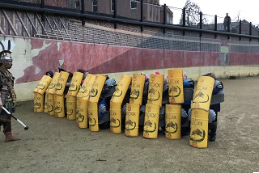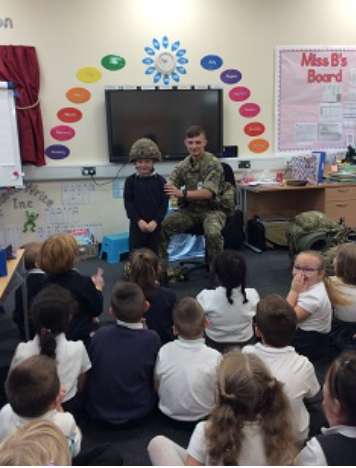History
At Westleigh Methodist Primary School, we aim to develop in children a desire for knowledge about the past and the events that have brought us to where we are today.
At Westleigh Methodist Primary School our history curriculum has been designed to ensure that all of our children have the knowledge and skills that are progressive and transferrable throughout their time at Westleigh and beyond. We aim to embed the knowledge and understanding of Britain’s past and that of the wider world. By doing this, students will develop a well-rounded knowledge of the past and its events, with the intention to improve every student’s cultural capital, understanding of the world around them and their own heritage. We take a thematic approach with our teaching of history and geography and are able to make cross-curricular links with other subjects, such as English, science and art.
Through history teaching, we enable children to gain a sense of personal identity and an understanding of their own cultural roots, as well as a respect for other cultures and other points of view. We also believe it important to ensure children have a sense of chronology and that local history is included. We believe that History encourages creative and critical thinking and a questioning mind.
Throughout the school, we recognise the importance of multiple approaches and use primary and secondary sources to give the children opportunities to become ‘active historians’. We ask our own questions, we investigate artefacts, we use the internet to research, and we enjoy drama, role-play and hot seating. We appreciate the role of narrative and read quality texts which link to our history topics. Children learn about aspects of the past, which relate directly to themselves, their families, their local area, our nation and the world.
Our Nursery and Reception pupils develop their sense of place and time through the 'Understanding the World' strand of the EYFS. Their natural curiosity of the world around them is developed through exploration of the school grounds and of people, places and communities in the local area and the wider world. Pupils begin to develop a sense of chronology including using time-related vocabulary and they discuss past and present events in their own lives and the lives of their family members.
In Key Stages 1 and 2 we use the Chris Quigley ‘Essentials’ Milestones as a framework for planning and delivering our History Curriculum. Our curriculum is based around Quigley’s Milestone Skills which are taken from the National Curriculum. These skills are taught through creative themes and are re-visited and built upon each year. This enables pupils to master these specific historical skills and to gain an in-depth understanding and knowledge.
|
History Milestones Skills:
|
|
Pupils’ learning within lessons is enlivened through the use of a range of artefacts, books, videos, photographs and timelines. Our pupils have access to knowledge organisers identifying key vocabulary. Our teachers carefully plan lessons which immerse pupils in rich vocabulary pertinent to the topic or concept they are learning. This ensures that pupils are able to communicate historically with confidence.
Pupils’ learning is further enriched through educational workshops and visits to local places of interest and educational establishments further afield. In our recent Ofsted report, it was stated that ‘teachers bring the curriculum to life through providing first-hand experiences’ and that our pupils ‘enjoy their many educational trips’. Examples of some recent experiences include:
- Taking part in an Old and New Toys workshop at Blackburn Museum. Pupils were able to handle and explore genuine Victorian toys.
- A visit to Grosvenor Museum in Chester for an authentic Roman experience. Pupils marched through the streets in formation with a Roman soldier and even got to practice shield formations in the amphitheatre.
- A visit to our local art gallery in Leigh, The Turnpike to view an exhibition of WWI photography.
- Pupils took part in historical workshops experiencing what life was like for hunter-gatherers in the Stone Age and on the home front in WWII.
- We were very privileged to welcome a WWII veteran to our school who spoke to our pupils about his experiences in the war. We were also visited by a modern solider who spoke about his role as a Kingsman.
Please see the History Curriculum Overview and Progression of Skills and Knowledge below:



